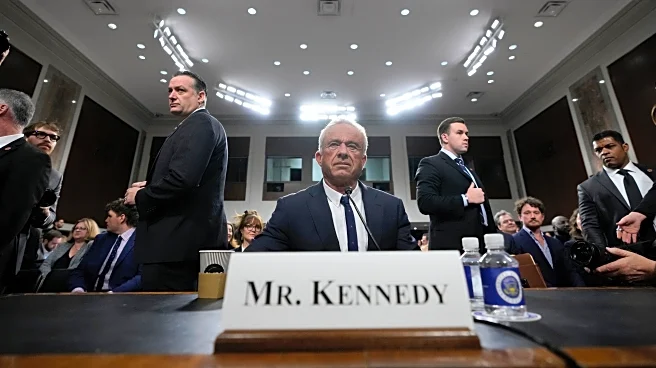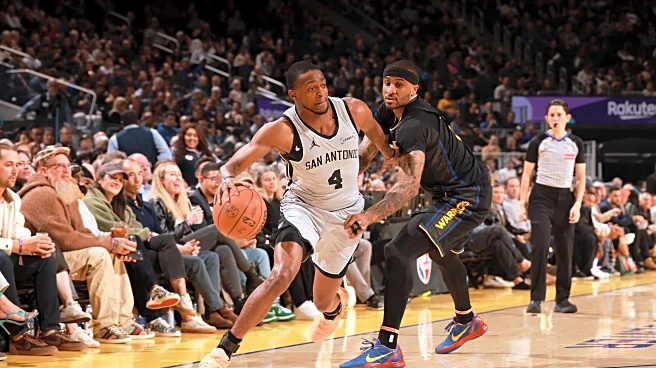What's Happening?
The University of Oklahoma and football head coach Brent Venables have agreed to a new contract that includes a $1 million reduction in his pay for the 2025 season. This decision was initiated by Venables as a one-time give-back to contribute to the department's revenue-sharing efforts. The contract, obtained through an open-records request, maintains the expiration date and future payment amounts beyond the 2025 season. Venables is set to earn $7.55 million for the current season, with subsequent increases in the following years. The agreement was signed in early February, and Venables is entering his fourth season as Oklahoma's coach, holding a 22-17 record over the past three seasons.
Why It's Important?
This pay cut reflects broader changes in college athletics, particularly concerning athlete compensation. Under recent settlements, schools can now directly pay athletes for their name, image, and likeness, with potential payments reaching up to $20.5 million for the 2025-26 school year. Venables' decision to reduce his salary aligns with these shifts, potentially influencing other coaches and programs to consider similar actions. The move also highlights the financial pressures and evolving landscape within college sports, where revenue-sharing and athlete compensation are becoming increasingly significant.
What's Next?
As the NCAA and Power Five conferences continue to adapt to new athlete compensation models, other coaches may follow Venables' lead in adjusting their contracts. This could lead to further negotiations and restructuring within college sports programs. Additionally, the impact of these changes on recruitment, team dynamics, and overall program success will be closely monitored. Stakeholders, including athletic departments and universities, will need to navigate these developments while balancing financial sustainability and competitive performance.
Beyond the Headlines
The decision by Venables and other coaches to take pay cuts may signal a shift in the cultural and ethical approach to college sports, emphasizing fairness and equity in athlete compensation. This could lead to long-term changes in how college sports are managed, potentially affecting the traditional power dynamics between coaches, athletes, and institutions. The broader implications for college sports governance and policy could be significant, as stakeholders reassess priorities in light of these developments.










